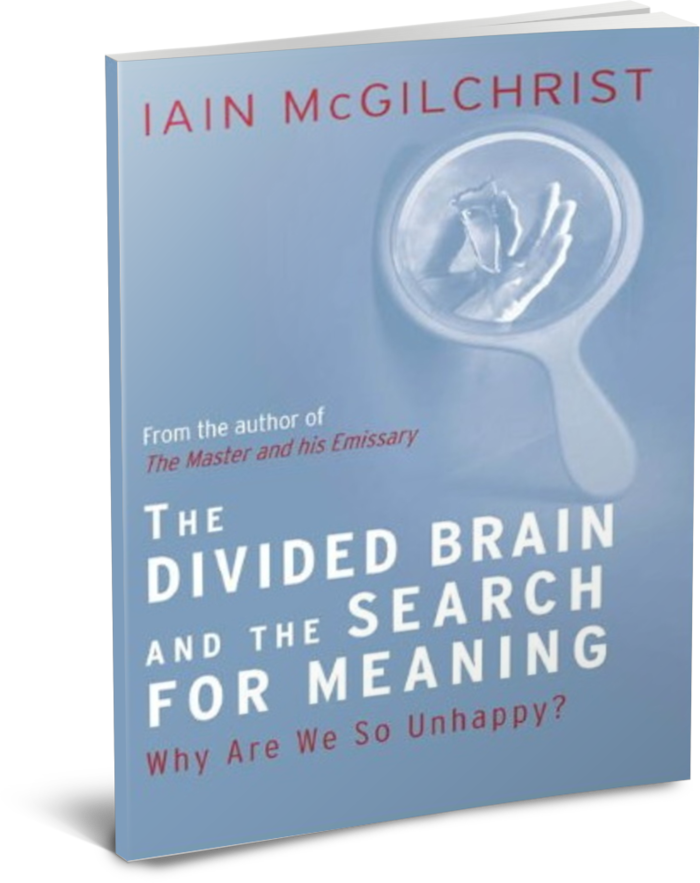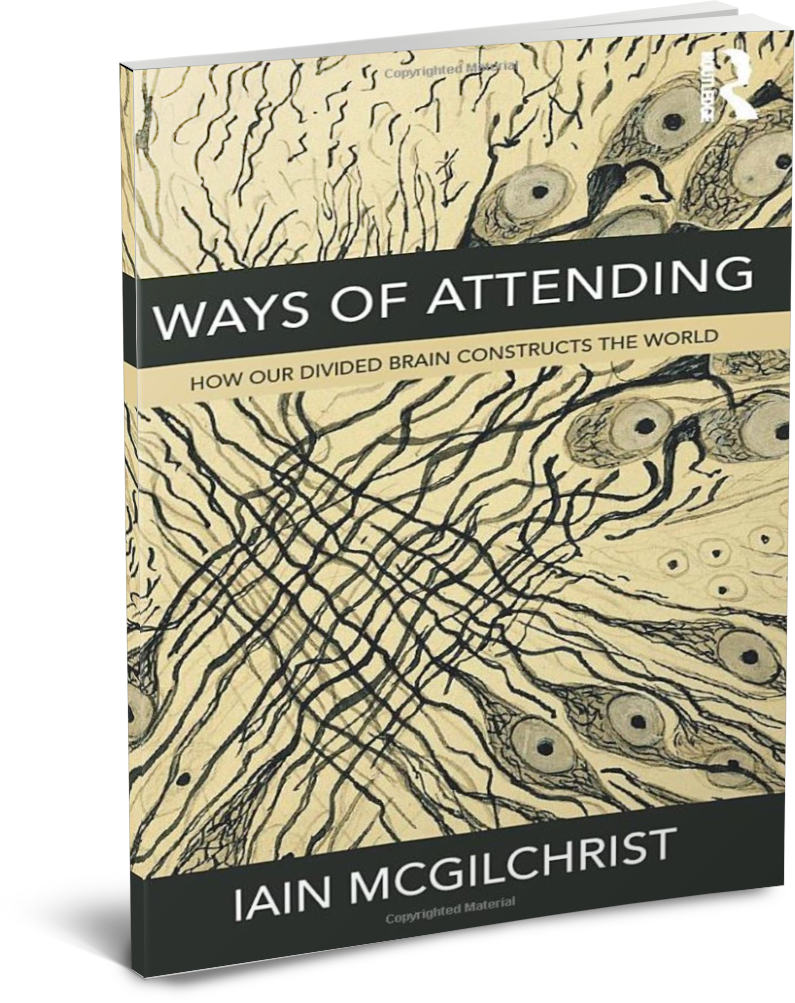Other Books

The Divided Brain and the Search for Meaning
From Amazon:
“In this 10,000-word essay, written to complement Iain McGilchrist’s acclaimed The Master and His Emissary, the author asks why – despite the vast increase in material well-being – people are less happy today than they were half a century ago, and suggests that the division between the two hemispheres of the brain has a critical effect on how we see and understand the world around us… Accessible to readers who haven’t yet read The Master and His Emissary as well as those who have, this is a fascinating, immensely thought-provoking essay that delves to the very heart of what it means to be human.”
Ways of Attending
This book helps you to see what it is you may have been trained by our very unusual culture not to see. Attention is not just receptive, but actively creative of the world we inhabit. How we attend makes all the difference to the world we experience. And nowadays in the West we generally attend in a rather unusual way: governed by the narrowly focussed, target-driven left hemisphere of the brain.
Forget everything you thought you knew about the difference between the hemispheres, because it will be largely wrong. It is not what each hemisphere does – they are both involved in everything – but how it does it, that matters. And the prime difference between the brain hemispheres is the manner in which they attend. For reasons of survival we need one hemisphere (in humans and many animals, the left) to pay narrow attention to detail, to grab hold of things we need, while the other, the right, keeps an eye out for everything else. The result is that one hemisphere is good at utilising the world, the other better at understanding it.

